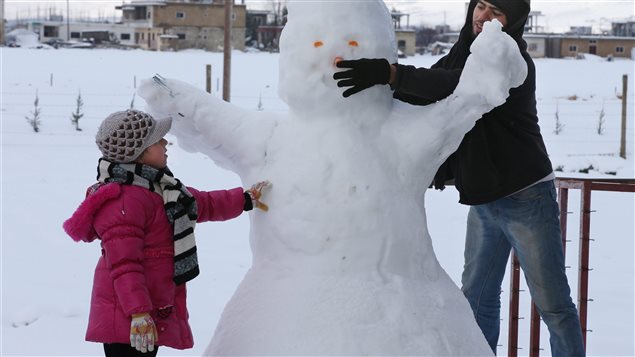Arab Canadians, particularly those in the Syrian-Canadian community, are getting ready to welcome and help settle 10,000 Syrian refugees. In response to the UNHCR’s global plea, Canada agreed to accept them over the next three years.
These Syrian refugees will be the next wave of Arab migration to Canada and the majority will be coming to communities in the central provinces of Ontario and Quebec.
There are approximately 41,000 Syrian Canadians according to the last census in 2011. Most of them live in and around the large urban centres of the Greater Toronto Area, and the Montreal region.
According to Raja Khoury, president of the Canadian Arab Institute, the Arab world is the second highest source of immigration to Canada with about 12 to 15 per cent of total immigrants
The First Wave
Syrians were among the first wave of Arab immigration to Canada back at the end of the 19th century. At the time it was mostly Syrian and Lebanese Christians who came, according to Professor Emeritus Henry Habib. He describes these pioneers as very hard working. They established churches that became a focal point for new arrivals for generations.
ListenThis first wave settled mainly in Montreal as it was the biggest and most prosperous city in Canada at the time. The city’s the largely French-speaking, Catholic population also provided opportunities to integrate into the society.
Professor Habib says the early Lebanese immigrants prospered and some moved into high profile positions over the generations. In the maritime provinces of Nova Scotia.and Prince Edward Island, there were two very politically active families. The Butlers, having anglicized their name, served as mayors of Halifax for two generations. And in Prince Edward Island Joe Ghiz served as Premier of the province, followed by his son Robert.
The second wave of Arab immigration was sparked by the Suez Crisis. In the late 1950’s many Egyptians came, and for the first time, Muslim Egyptians were coming as well. The third wave took place over the course of the civil war in Lebanon, from 1975 until 1990. This generation of mostly Lebanese, settled all over Canada.
Raja Khoury says now the majority of Arab Canadians come from about 10 countries. He says Arab Canadians are very diverse, there is no one community; they are people of various ethnicities, various religions and various sects.
ListenWe needed Canadians to get to know the Canadian Arab community for what it is rather than what’s in the headlines.
Raja Khoury says the CAI was established as a think tank and a research organization to increase the knowledge of the Canadian Arab community.
He says, “It’s about time that there’s now this kind of organization that can help the Canadian Arab community integrate but also help Canadian society understand and better relate to a community that is often misunderstood or not clearly understood at least, because of events elsewhere.”
He says the knowledge and awareness of Arab diversity is gradually improving. An event in Hamilton, Ontario, a week after the October 22, 2014 shooting of a Canadian reservist near Parliament Hill in Ottawa, proves the point.
Three young men, in what they described as a “social experiment” staged a situation in which one of them played a “Muslim” by dressing in the traditional white tunic with a beard, while another hurled accusations of terrorism at him and asked him not to get on the same bus, as he may have been hiding a bomb, while a third member filmed the altercations.
Within a week of the allegedly terrorist shooting rampage by Michael Zihaf-Bibeau, people were stepping in to defend the Muslim man at the bus stop with great passion and conviction Raja Khoury says “That was really Canadians at their best. The fact that people did not want to generalize their anger at what happened in Ottawa on just any Muslim spoke a lot about the success of Canadian multiculturalism.”







For reasons beyond our control, and for an undetermined period of time, our comment section is now closed. However, our social networks remain open to your contributions.